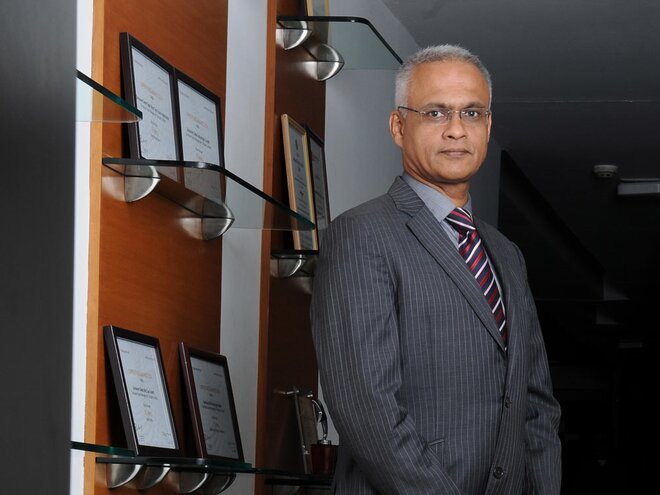
Revision of expense slabs by the regulator, the push towards passives, and the anticipated entry of several new AMCs translate into a greater focus on cost. Do you believe there is potential to drive the costs (expense ratios) down substantially from the current levels while still running the business profitably?
The key issue is one of scale - mutual funds are high on operating leverage. Hence, the greater the scale, the greater the margins once we cross the break-even point. The regulator has addressed the issue of scale at the fund-management level by stipulating a reverse-cascading fee structure, which has taken down the costs dramatically. But fund-manager salaries are not the only cost; sales and distribution costs are spread across the fund pool and hence, smaller AMCs are at a severe disadvantage on this aspect and hence, there is a limited scope to drive down the costs further. This is also the reason the focus of new AMCs is on the passive space where these costs are minimal. From an investor perspective, if he is cost conscious, he already has a choice now of (1) choosing passive or (2) choosing a large-sized fund and (3) going direct. Hence, I don't see a need to drive down the costs further substantially.
Many people these days take to equity investing by owning the stocks directly. Innovations like smallcase are further catalysing this trend. What implications do you see on the businesses of mutual funds? Can they pose a challenge to the growth story you would envision for the fund industry?
Direct equity investing by retail/HNI (high networth individuals) investors come more from a 'speculative' or 'trading' mentality, driven by the 'greed to make quick gains' and has been given a boost by the liquidity-driven secular rise in the markets, making many of these investors feel they are 'very smart' when actually they are just 'very lucky'. So, as the markets go through their fluctuations and sinusoidal moves over the medium term, these very investors will form a very fertile base for the mutual fund industry to tap into, to expand the investor base. So, I actually feel that this is a form of market expansion which will help the industry grow in the longer term.
Rapid-fire questions:
Investment guru/manager you admire the most: Prashant Jain - the courage of conviction demonstrated even through long periods of underperformance.- Business leader you'd like to emulate: Ratan Tata - for his integrity and contribution to social causes.
- The most rewarding financial investment you've ever made: State Bank of India's shares purchased 30 years ago, which I continue to hold.
- Money mantra you swear by: Every single investment has to have a predetermined goal and one must ruthlessly liquidate when the goal is attained.
- If not a money manager, you'd be: A teacher.








